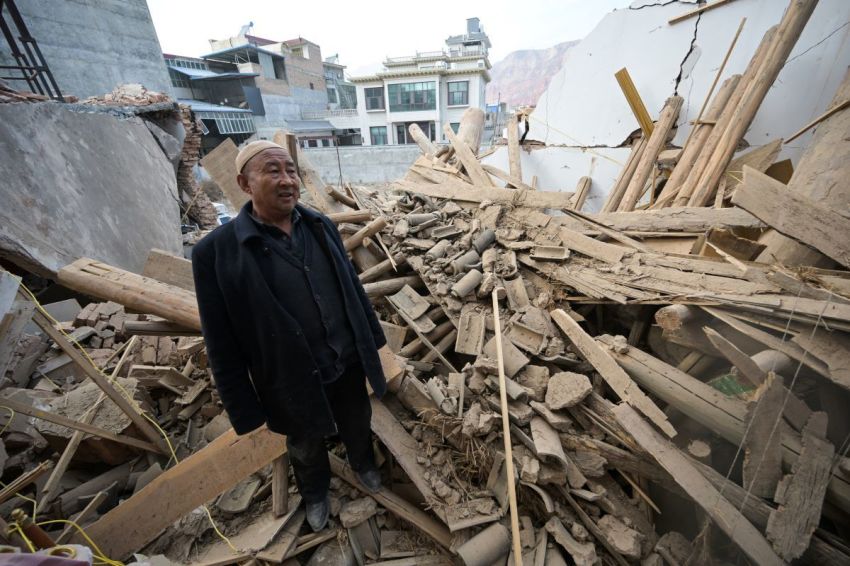At least 131 killed, 700 injured in China’s deadliest earthquake in 9 years

A devastating earthquake, measuring 6.2 in magnitude, rocked northwestern China shortly before midnight on Monday. The seismic event, impacting Gansu and Qinghai provinces, stands as the most lethal earthquake in China in the past nine years, claiming the lives of at least 131 individuals and injuring over 700.
The quake's epicenter was in Jishishan county, Gansu, near the Qinghai border, The Associated Press reported, adding that it occurred at a shallow depth of 6.2 miles, intensifying its impact. The U.S. Geological Survey recorded the magnitude at 5.9. The tremors were felt as far as Lanzhou, Gansu's capital, about 60 miles northeast of the epicenter.
The disaster left residents in dire conditions, with many spending the night in tents in freezing temperatures, the newswire noted.
Ma Dongdong, a local resident, described his family's ordeal of spending the night outside after their home was damaged. Three bedrooms in his house were destroyed, and a section of his milk tea shop was left with a wide, gaping crack.
The China Meteorological Administration reported overnight lows between 5°F to minus 15.8°F.
State broadcaster CCTV reported 113 deaths in Gansu and 18 in Qinghai. The quake also caused landslides, complicating rescue efforts. Emergency workers are searching for missing persons, with Qinghai officials reporting 16 missing in a landslide.
According to Reuters, 78 people were found alive in Gansu, where rescue operations concluded Tuesday afternoon. Attention is now turning to treating the injured and resettling residents as they brace for the challenges of the approaching months-long winter.
The earthquake's timing, in the middle of the night, and the region's poor building quality contributed to the high casualty rate. Li Haibing, from the Chinese Academy of Geological Sciences, noted the quake's shallow depth and vertical movement as factors in the destruction.
The affected area, home to Muslim ethnic groups and near Tibetan communities, is remote and mountainous. The Chinese government is reportedly sending tents, beds and quilts to the area.
In Linxia Hui Autonomous Prefecture, the quake's epicenter, residents faced additional challenges due to the high altitude and harsh winter conditions. The area, with a population of 2.7 million, is predominantly rural, with many buildings made of clay and mud.
Personal accounts from survivors like Ma Zhongliang, a restaurant owner, and Liu Zhenfang, a hotel receptionist, highlight the quake's sudden and violent nature. Ma described the tremors as being "like standing between two trains," and Liu recounted the dust shaking off surveillance cameras, as reported by The Wall Street Journal.
The Chinese government says it has mobilized a significant rescue operation, with thousands of firefighters, soldiers, police officers and emergency personnel involved.
The region is prone to earthquakes, sitting on the edge of the Tibetan Plateau, where the Indian and Eurasian Plates meet. This quake follows a 6.8 magnitude earthquake in Sichuan province in September 2022, which killed 93 people.
China's history of deadly earthquakes includes the 2008 Sichuan quake, which had a magnitude of 7.9 and resulted in nearly 90,000 deaths. The country has since focused on rebuilding with more resistant materials, but challenges remain in rural and remote areas.



























